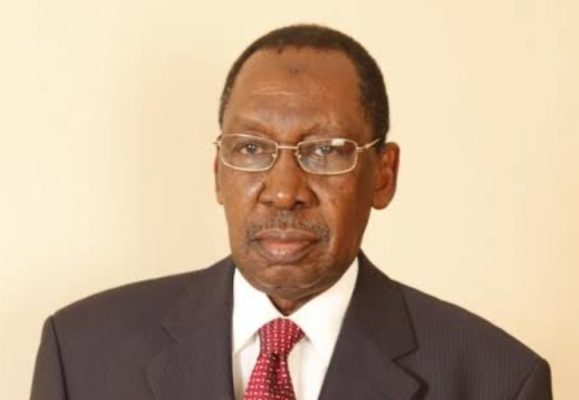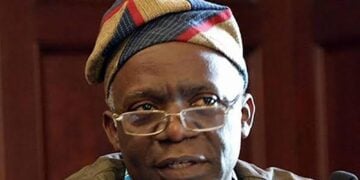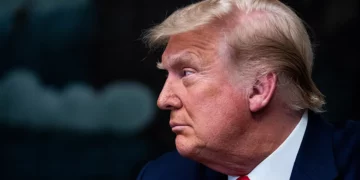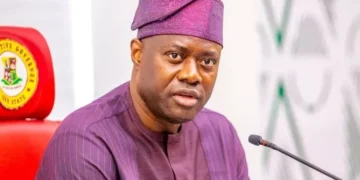Nigeria’s judiciary was thrown into mourning yesterday with the news of the death of the second longest-serving Chief Justice of Nigeria, Justice Muhammadu Lawal Uwais.
The late jurist died in Abuja yesterday.
A family member who confirmed his death said the retired jurist died in Abuja on Friday, June 6, 2025.
He has been buried in line with Islamic rites.
Born on June 12, 1936, Justice Uwais served as the Chief Justice of Nigeria from 1995 until his retirement in 2006.
After retiring from the Supreme Court, he was appointed by the late President Umaru Musa Yar’Adua to lead the Electoral Reform Committee where he played a key role in efforts to improve Nigeria’s electoral system.
He chaired a commission that published a much-publicised report on electoral reform.
Tributes
Reactions have, however, been pouring in since his demise was announced.
The Supreme Court, where he served for 27 years before his retirement on June 12, 2006, said his professional achievements and unwavering commitment to justice have had a lasting impact on Nigeria’s legal landscape.
The director of information at the Apex Court, Dr Festus Amanda, said, “During his tenure as Chief Justice, he championed judicial reforms aimed at improving the administration of justice in Nigeria.
“He was instrumental in establishing the National Judicial Council, which plays a critical role in maintaining the independence and integrity of the judiciary.
“Justice Uwais was also dedicated to advancing legal education and was a mentor to many young lawyers and judges.”
He went on to express the Supreme Court’s condolences to the family of Justice Uwais during their moment of grief.
“We honour his tireless dedication to the rule of law and the improvement of the Nigerian judiciary; values for which he will always be remembered.
“Hon. Justice Uwais’s professional achievements and unwavering commitment to justice have had a lasting impact on Nigeria’s legal landscape. He will be sorely missed by colleagues, friends, and the many lives he touched throughout his career.”
The Chief Justice of Nigeria, Justice Kudirat Kekere-Ekun, said she received the news with sadness but also with gratitude to Almighty God for the life of impact that he lived.
The CJN described him as a towering figure in Nigeria’s legal and judicial history, an erudite jurist, visionary reformer, and statesman whose contributions to the development of constitutional law, judicial independence, and democratic governance will forever remain etched in the annals of our national life.
“Hon. Justice Uwais distinguished himself by his unwavering commitment to justice, courage in the defence of the rule of law, and the clarity and scholarship of his judgments.
“His post-retirement service, including chairing the Electoral Reform Committee, further affirmed his deep love for country and passion for institutional integrity.
“The life and legacy of Hon. Justice Mohammed Lawal Uwais will continue to inspire generations of judges, lawyers, and public servants. He was, indeed, a beacon of principle and a guardian of judicial honour,” she said.
Renowned Senior Advocate of Nigeria, Dr Ahmed Raji, described him as a great jurist who delivered many landmark judgements that have stood the test of time.
“He was very civil, gentle, moderate and noble. We will miss him. May God repose his gentle soul and reward him with aljanna firdaous,” Raji said.
On his part, Attorney-General of Ondo State, Barrister Kayode Ajulo, SAN, said Justice Uwais was instrumental in Nigeria’s journey of democratic development and nation-building, serving not only as a jurist but as a visionary reformist of the country ‘s electoral process.
“His leadership as chairman of the Electoral Reform Committee, alongside esteemed members such as Bishop Mathew Kukah and Dr. Olisa Agbakoba, OON, SAN, exemplified his remarkable wisdom.
“The recommendations he presented not only established new standards but also instilled in our system a profound understanding of law and the responsibilities it entails.
“Among his most significant contributions was the call for the establishment of an independent electoral commission, a vital measure designed to enhance the integrity and transparency of Nigeria’s electoral process,” Ajulo said.
Another senior lawyer, Mr Abdul Balogun, SAN, said the former CJN was a true beacon of integrity for the judiciary, and everyone looked up to him.
According to him, he transformed Nigeria’s legal system and laid the foundation that will endure.
Career Growth
Born on June 12, 1936, in Zaria, Kaduna State, Uwais was the son of the Chief Alkali and later Waziri of Zaria emirate.
Uwais was called to the Bar at the Middle Temple, London, in 1963
As a judicial officer, he started off early as a judge. At the age of 36, the late Justice Uwais was already on the High Court Bench, and at 41, he was already a Justice of the Court of Appeal.
As a result of his excellent performance on the Bench, he was elevated to the Supreme Court in 1979 and later served as the Chief Justice of Nigeria from 1995 to 2006, when he attained the mandatory retirement age of 70 for appellate court judges.
Altogether, he served 33 years in judicial office.
The late Justice Uwais wanted to become a judge at 45 and retire from the High Court at 65, but fate had its way, and he rose to become the country’s number one judicial officer.
Shortly after Uwais was promoted to the Supreme Court on August 15, 1979, along with the late Attorney General of the Federation, Justice Augustine Nnamani, under General Olusegun Obasanjo, then military Head of State, his first case was the popular 12 two-thirdss case between the late Chief Obafemi Awolowo and Alhaji Shehu Shagari.
He was invited by the then Chief Justice of Nigeria, Hon. Justice Atanda Fatai-Williams, to join the panel that decided the appeal, which today is a cause célèbre. This was because Justice George S. Sowemimo, who later became a CJN himself, declined to be part of the panel. Sowemimo’s excuse was that he had convicted Awolowo in the 1960s in the then Western Region.
Also in 1999 and 2003, he presided over the Presidential Election Petition Appeal to the Apex Court.
In 1999 and 2003, former President Olusegun Obasanjo was declared the winner of the elections by the Independent National Electoral Commission, INEC.
Both Chief Olu Falae and former President Muhammadu Buhari, who were presidential candidates of the Alliance for Democracy and the All Nigeria Peoples Party, ANPP, respectively, filed an appeal to the Supreme Court to challenge the decision of the tribunal and the Court of Appeal.
Justice Uwais presided over both appeals and dismissed them.
Post-retirement service
After retiring from the Supreme Court, Uwais chaired a panel on electoral reform that submitted a report on 11 December 2008 with recommendations that included establishing commissions to deal with Electoral Offences, Constituency Delimitation and Political Parties Registration and Regulation.
Some of the power vested in the Independent National Electoral Commission (INEC) and the State Independent Electoral Commissions would be transferred to the new commissions.
The committee recommended proportional election representation to the Federal and State legislatures and the local government councils.
The report also recommended that the head of the Independent National Electoral Commission should be appointed by the judiciary rather than the President. President Umaru Yar’Adua rejected this recommendation.
Yar’Adua forwarded a modified version of the Uwais report to the legislature in 2009, drawing considerable criticism since many felt that recent elections had been deeply flawed and that basic reforms were required.
In March 2010, Acting President Goodluck Jonathan forwarded an unedited version of the report to the National Assembly for approval, the implication being that the recommendations should be implemented in their entirety before the 2011 national elections.
The issue of who should appoint the INEC head remained controversial. Before Jonathan resubmitted the report, the Senate Committee on the Review of the Constitution had rejected the recommendation to transfer this power to the judiciary.
After the resubmission, the Deputy Chief Whip of the Senate, Mohammed Mana, argued that letting the judiciary appoint the INEC chairman violated the principle of separation of powers since the judiciary was responsible for hearing cases arising from elections.
We’ve got the edge. Get real-time reports, breaking scoops, and exclusive angles delivered straight to your phone. Don’t settle for stale news. Join LEADERSHIP NEWS on WhatsApp for 24/7 updates →
Join Our WhatsApp Channel










